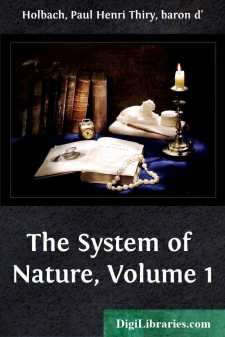Fiction
- Action & Adventure 183
- Biographical 15
- Christian 59
- Classics
- Coming of Age 5
- Contemporary Women 3
- Erotica 9
- Espionage/Intrigue 12
- Fairy Tales, Folklore & Mythology 236
- Family Life 169
- Fantasy 117
- Gay 1
- General 596
- Ghost 32
- Historical 808
- Horror 43
- Humorous 161
- Jewish 25
- Legal 4
- Medical 22
- Mystery & Detective 315
- Political 49
- Psychological 41
- Religious 64
- Romance 160
- Sagas 11
- Science Fiction 730
- Sea Stories 113
- Short Stories (single author) 537
- Sports 10
- Suspense 1
- Technological 8
- Thrillers 2
- Urban Life 31
- Visionary & Metaphysical 1
- War & Military 173
- Westerns 199
Classics Books
Sort by:
I LIFE OF STEVENSON Robert Louis Stevenson[1] was born at Edinburgh on the 13 November 1850. His father, Thomas, and his grandfather, Robert, were both distinguished light-house engineers; and the maternal grandfather, Balfour, was a Professor of Moral Philosophy, who lived to be ninety years old. There was, therefore, a combination of Lux et Veritas in the blood of young Louis Stevenson, which in Dr....
more...
CHAPTER I. INTRODUCTORY SOME DETAILS OF THE BIOGRAPHY OF THAT HIGHLY RESPECTED GENTLEMAN STEPAN TROFIMOVITCH VERHOVENSKY. IN UNDERTAKING to describe the recent and strange incidents in our town, till lately wrapped in uneventful obscurity, I find myself forced in absence of literary skill to begin my story rather far back, that is to say, with certain biographical details concerning that talented and...
more...
Belinda Act I It is a lovely April afternoon–a foretaste of summer–in Belinda's garden. Betty, a middle-aged servant, is fastening a hammock–its first appearance this year–to a tree down L. In front there is a garden-table, with a deck-chair on the right of it and a straight-backed one to the left. There are books, papers, and magazines on the table. Belinda, of whom we shall know more...
more...
by:
John Bates Clark
PREFACE In a work on the "Distribution of Wealth," which was published in 1899, I expressed an intention of offering later to my readers a volume on "Economic Dynamics, or The Laws of Industrial Progress." Though eight years have since passed, that purpose is still unexecuted, and it has become apparent that any adequate treatment of Economic Dynamics will require more than one volume...
more...
CHAPTER I THE DAWN OF A WEDDING-JOURNEY Mr. and Mrs. Hector Archibald were prosperous and happy dwellers in a suburb of one of our large towns. Fortune had favored them in many ways—in health and in a good average happiness. They had reached early middle age, and their daughter Kate, their only child, had grown up to be a beautiful and good young woman, and was on the point of marrying a young...
more...
CHAPTER I I MAKE NO EFFORT TO DEFEND MYSELF I am quite sure it was my Uncle Rilas who said that I was a fool. If memory serves me well he relieved himself of that conviction in the presence of my mother—whose brother he was—at a time when I was least competent to acknowledge his wisdom and most arrogant in asserting my own. I was a freshman in college: a fact—or condition, perhaps,—which should...
more...
by:
Gustav Kobbe
THE PIANOFORTE There must be practically on the part of every one who attends a pianoforte recital some degree of curiosity regarding the instrument itself. Therefore, it seems to me pertinent to institute at the very outset an inquiry into what the pianoforte is and how it became what it isâthe most practical, most expressive and most universal of musical instruments, the instrument of the...
more...
INTRODUCTION Paul Henri Thiery, Baron d'Holbach (1723-1789), was the center of the radical wing of the philosophes. He was friend, host, and patron to a wide circle that included Diderot, D'Alembert, Helvetius, and Hume. Holbach wrote, translated, edited, and issued a stream of books and pamphlets, often under other names, that has made him the despair of bibliographers but has connected his...
more...
by:
William Evans
The world could afford to spare many a magnificent library better than it could dispense with this little Psalm of six verses. If the verses of this Psalm had tongues and could repeat the tale of their ministry down throughout the generations of the faithful, what marvels of experience they would reveal! Their biographies would be gathered from the four winds of heaven and from the uttermost parts of...
more...
by:
Benjamin Jowett
INTRODUCTION. This Dialogue begins abruptly with a question of Meno, who asks, 'whether virtue can be taught.' Socrates replies that he does not as yet know what virtue is, and has never known anyone who did. 'Then he cannot have met Gorgias when he was at Athens.' Yes, Socrates had met him, but he has a bad memory, and has forgotten what Gorgias said. Will Meno tell him his own...
more...











